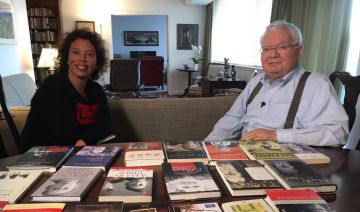Documentary Thomas Buergenthal
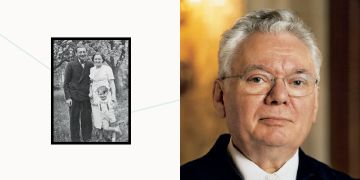
The documentary on Thomas Buergenthal's life, from surviving the Holocaust to becoming a U.S. judge, is incredibly relevant today for several important reasons. Its primary role is to help us remember the difficult times during the Holocaust, ensuring that the challenges faced during that dark period are not forgotten over time. The documentary takes us through Thomas Buergenthal's journey, showcasing the incredible strength and resilience he demonstrated in the face of unimaginable challenges.
One distinctive aspect that sets this documentary apart is the inclusion of heartfelt interviews with Thomas Buergenthal's family, including his wife and two sons. Their voices provide a unique and personal perspective, shedding light on how Thomas Buergenthal's experiences profoundly impacted his closest loved ones. This family-focused approach not only humanizes the historical narrative but also establishes a deep emotional connection with viewers, making the documentary both relatable and emotionally resonant.
Beyond the personal, the documentary delves into Buergenthal's professional journey, exploring his path from surviving Auschwitz to becoming a U.S. judge. This exploration of his contributions to the legal field, especially in international courts and human rights advocacy, makes Thomas Buergenthal's story a source of inspiration and offers insights into the potential for positive change.
Additionally, the documentary takes a closer look at Buergenthal's literary contributions, particularly his book "A Lucky Child." By taking a closer look into the process of writing the book and its effects, the documentary provides a deeper understanding of Thomas’ personal reflections on his experiences. This unique storytelling approach allows viewers to connect with him on a more personal level, moving beyond the simple historical facts found in textbooks.
Working on this documentary and witnessing the interviews with Thomas Buergenthal and his family has been really touching. I've been struck by how inspiring he is and how strong he comes across in his story. Hearing his family talk about him showed me how much he meant to them. It's not just a history thing; it's personal and human. Thomas Buergenthal shows us what it means to keep going, even when things are really tough. His courage and commitment to doing what's right are things that stick with you. I find myself inspired by his strength and resilience. This documentary isn't just about the past; it's a reminder to keep going even when things get hard.
Should you wish to get in touch, you can of course do so. Please email me at nathalie@medialuna.nl.
If you would like to contribute
Bank transfer: Media Luna, NL56 RABO0303416017
Trough our GoFundMe for direct contributions
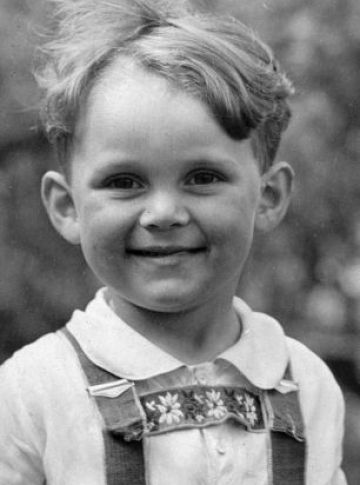
Who is Thomas Buergenthal?
As a child, Thomas Buergenthal survived the Kielce Ghetto, Auschwitz and the infamous Death March from Auschwitz to Sachsenhausen in the harsh winter of 1944.
Driven by his experiences in the camps, Thomas comes to the conclusion that he wants to dedicate his life to the service of humanity.
In 1951, he left for America and began a new life as an advocate for international human rights. As a judge, he worked all over the world for the U.S. and the UN, finally achieving the highest honor: being appointed judge of the International Court of Justice at the Peace Palace in The Hague.
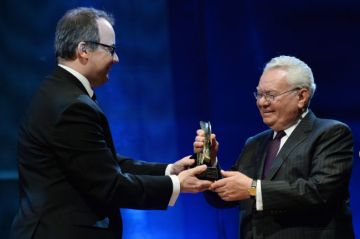
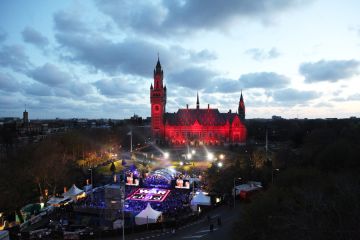
Where did my fascination for this man come from?
Let's go back to 2010. For War Child, one of my regular clients, I had found the ultimate venue for the repeating concert, Friends For War Child: Namely, in front of the Peace Palace. While preparing for this concert, I heard the story of Thomas Buergenthal, who had been a judge at the Peace Palace for 10 years. He had written a book: A Lucky Child - about his time as a child during the Holocaust. After reading this book, I knew immediately that I wanted to make a documentary about this man.
I was triggered from the very first moment; a man who experienced the extermination camps as a child and then later decides to live in The Hague for 10 years and work there for peace through justice? How can you still believe in that? You have experienced the greatest injustice, the very, very worst of people. And then you believe that you can bring people to reason through justice? Huh?
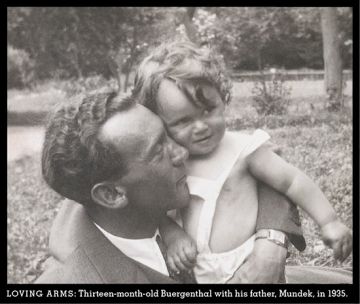
How does that 10-year-old boy fit into the judge he later became?
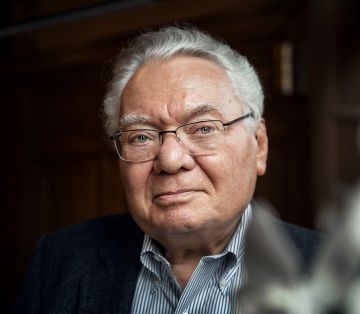
Did you ever look at people in that international court that made you think, remember, all those bad people back then?
How does that little 10-year-old boy fit into the judge he later became?
How did he ever dare to trust the law again?
After all, there was not an ounce of justice in the ghetto of Kielce where he watched 45 children, completely innocent, being shot. Among these 45 children were a boy and girl who felt like a brother and sister because their parents had been taken away. Parents who literally pushed their children into the arms of Thomas's parents with a desperate look; please, make sure they survive... '.
MY GOD.
And then you believe in justice ?
I want to know how Thomas makes this journey inside continuously; along that horrible history where all justice was gone and there was only injustice, how you then end up 10 years, in the courtroom of the International Court of Justice in the Peace Palace in The Hague....
